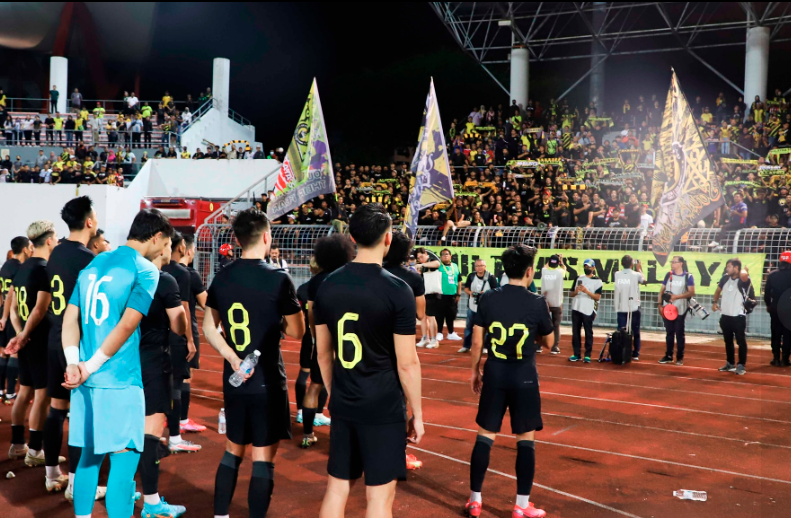THE football World Cup 2022 final between France and Argentina was recently held on Sunday night in Qatar.
It was a suspenseful and dramatic football match that had viewers glued to their televisions around the world.
The match, which was broadcast live in many countries, brought people from all walks of life together, regardless of their background, race and religion.
Even though Argentina won 4-2 through penalty kicks after extra time, it brought all the players together for the common purpose of peace and harmony and to share space and equipment.
Sport has the power to change the world, strengthen social ties and promote sustainable development, solidarity and respect for all.
Youth and Sports Minister Hannah Yeoh should actively use sports as a tool towards nation-building at the state and national levels and to bring out the best in our athletes and youths.
At the grassroots level or community level, sports can be seen to provide a valuable way of creating an environment in which Malaysians of diverse backgrounds through the “Sports Unite” programme use football, bowling and basketball to bring children and communities together.
An assessment of the programme will show fewer racial stereotypes and less racism which favours racial integration and further inter-racial socialisation in our children such as the one experienced in the 50s until early 70s.
We need more engagement with various stakeholders, ministries, the private sector, and even our political rivals.
This can be done through fun and games, recreation and competition such as half and full marathons for various categories in building relationships between different groups, and sports as a means of communication to engage in collective experience and to establish direct physical contact.
Let us celebrate the joy of movement and skill. Sport also holds a mirror to our society.
As former South African president Nelson Mandela said, “Sport has the power to change the world in rebuilding relationships and establishing peace and understanding, and we will be there at the forefront of doing that.”
Sport provides an identity in building national pride and image, and forming a cohesive national identity such as the Podium Project 2016-2020 Tokyo Olympics.
Malaysia had great success qualifying for the 1972 Munich and 1980 Moscow Olympics football tournaments (even though we pulled out due to a US-led boycott).
In the 1975 World Cup hockey championships in Kuala Lumpur, we were placed fourth, and in the 1992 Thomas Cup held in Kuala Lumpur, we lifted the trophy after a hard-earned battle on the court.
We have produced eight-time world champion women’s squash player Datuk Nicol David, three-time Olympic badminton singles silver medallist Datuk Lee Chong Wei, bronze and silver medallist Datuk Azizul Hasni Awang in cycling at the Olympics and bronze and silver medallist Datuk Pandelela Rinong in diving, and many other world-class athletes in other elite sports who aim to have our Jalur Gemilang hoisted at the world stage.
No doubt sports also make a great contribution to the well-being and health of our society, both mental and physical.
Let us celebrate victories and foster a sporting culture among Malaysians so that we can be competitive, healthy, and united.
Let us reject any form of extremism in our society that seeks to divide political parties at the expense of their personal agenda.
The government, political leaders, non-governmental organisations (NGOs), teachers, parents, and community leaders all have a role to play in uniting Malaysians through actions and initiatives, not just words.
C. Sathasivam Sitheravellu
(former national athlete)
Seremban









